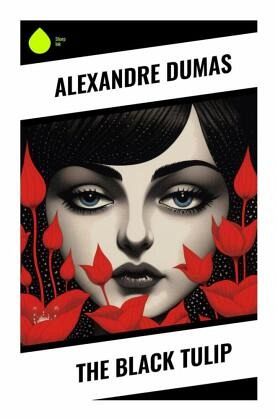
The Black Tulip
Versandkostenfrei!
Versandfertig in 6-10 Tagen
11,20 €
inkl. MwSt.

PAYBACK Punkte
0 °P sammeln!
In "The Black Tulip," Alexandre Dumas crafts a richly woven tale set against the backdrop of 17th-century Holland, all the while intertwining historical events with a gripping narrative of love, ambition, and rivalry. At its heart lies the quest for the elusive black tulip-a symbol of beauty and rarity-set during a period of political turmoil and societal intrigue. Dumas employs a lively and accessible prose style, filled with sharp dialogue and vibrant characterizations, which renders the historical context not only informative but also profoundly engaging for readers. This work exemplifies D...
In "The Black Tulip," Alexandre Dumas crafts a richly woven tale set against the backdrop of 17th-century Holland, all the while intertwining historical events with a gripping narrative of love, ambition, and rivalry. At its heart lies the quest for the elusive black tulip-a symbol of beauty and rarity-set during a period of political turmoil and societal intrigue. Dumas employs a lively and accessible prose style, filled with sharp dialogue and vibrant characterizations, which renders the historical context not only informative but also profoundly engaging for readers. This work exemplifies Dumas's ability to blend adventure with profound thematic undercurrents, notably exploring the relationship between obsession and artistic creation. Dumas, a prolific author best known for classics such as "The Count of Monte Cristo" and "The Three Musketeers," draws inspiration from his own diverse heritage and keen interest in history. His writing often reflects his disdain for tyranny, celebrating the resilience of the human spirit, making the backdrop of the tulip frenzy particularly resonant. "The Black Tulip" embodies Dumas's fascination with the interplay of history and fiction, revealing his perspective on class struggle and societal expectations. This enchanting novel is highly recommended for those who appreciate historical fiction fused with romance and adventure. Dumas's storytelling prowess invites readers to delve into a world where beauty, greed, and love collide, rendering "The Black Tulip" a timeless narrative that continues to captivate and inspire.












